The autopsy conducted on the body of late singer Mohbad has revealed the possible cause of his death.
The result of the autopsy conducted at the Lagos State University Teaching Hospital (LASUTH) was obtained by TheCable Lifestyle on Thursday.
According to the report, samples of the gastric content, blood, bone marrow, liver, kidney, and lung of the late singer were retrieved for a toxicology test.
The anatomical and pathological findings revealed that Mohbad had an injury on his right forearm and his body was exhumed with moderate to severe decomposition.
The autopsy also showed that “no significant gross finding” could be attributed to the singer’s death.
The toxicology revealed the positive finding of Diphenhydramine, an anti-histamine; however, this concentration was not in a fatal or lethal range.
Anti-histamines are medicines used to treat symptoms of allergies. They are also used to treat a variety of other conditions such as stomach problems, colds, and anxiety, among others.
The report said the cause of death could not be ascertained. It, however, added that there is a possibility of drug reaction in view of any significant post-mortem and toxicology findings.
It is noteworthy that the body neither had an autopsy nor embalmed prior to interment on the second day,” the report states.
Following the Order for Exhumation, the body was exhumed on 21/09/2023 (8 days after the burial).
Autopsy revealed moderate to marked decomposition of organs. Apart from the superficial injury on the right forearm, no significant gross finding could be attributed to death.
Against this background, samples were taken for toxicology. This is to determine if there was any anaphylactic reaction, substances of abuse, overdosage or common household poisoning.
Toxicology revealed positive findings of Diphenhydramine, an anti-histamine; however, this concentration was not in a fatal or lethal range. The other analytics were unremarkable.
In determining fatal anaphylactic shock, blood sample needs to be taken as quickly as possible.
Unfortunately, this was prevented or made impossible by the burial of the deceased on the second day. In the light of the foregoing, cause of death could not be ascertained.
However, the possibility of a fatal anaphylactic shock (drug reaction) could be considered in view of the absence of any significant post mortem and toxicology findings.
See details below:
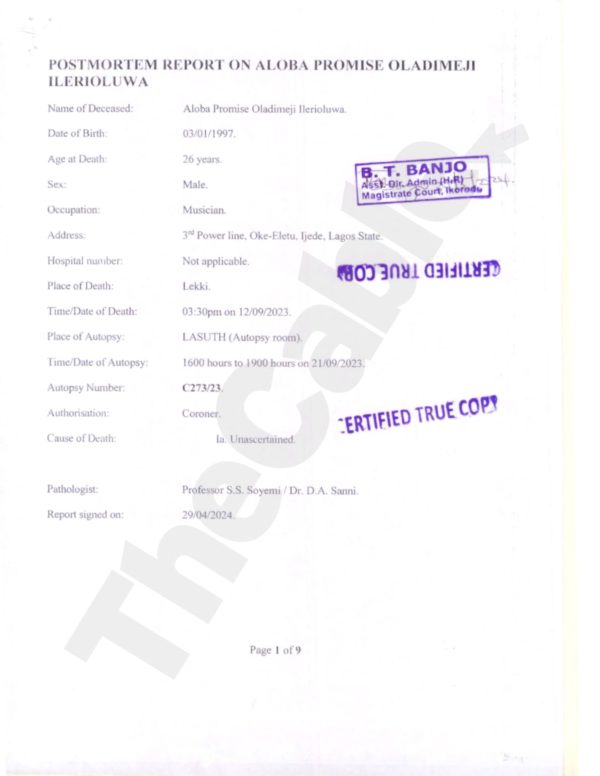
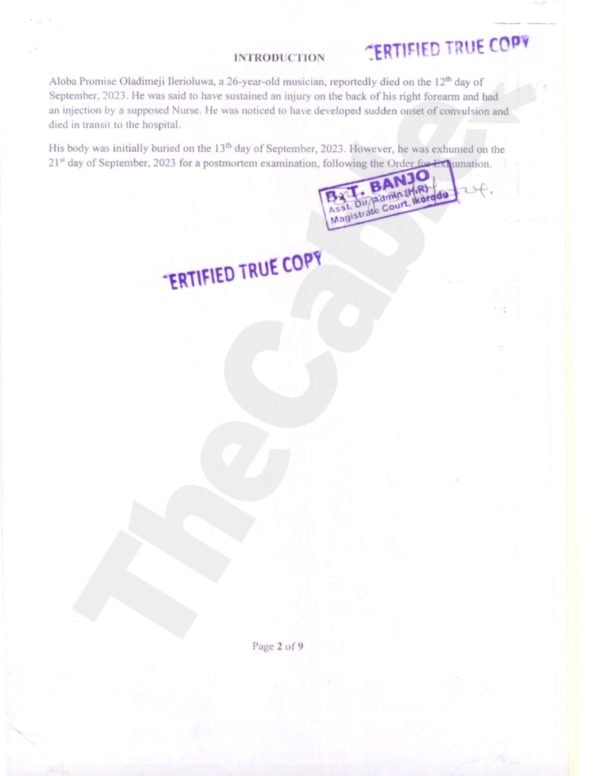
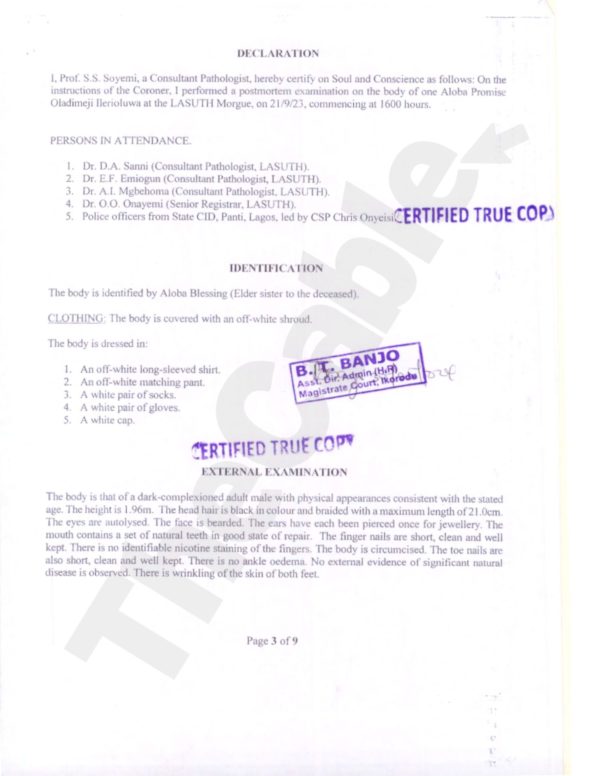
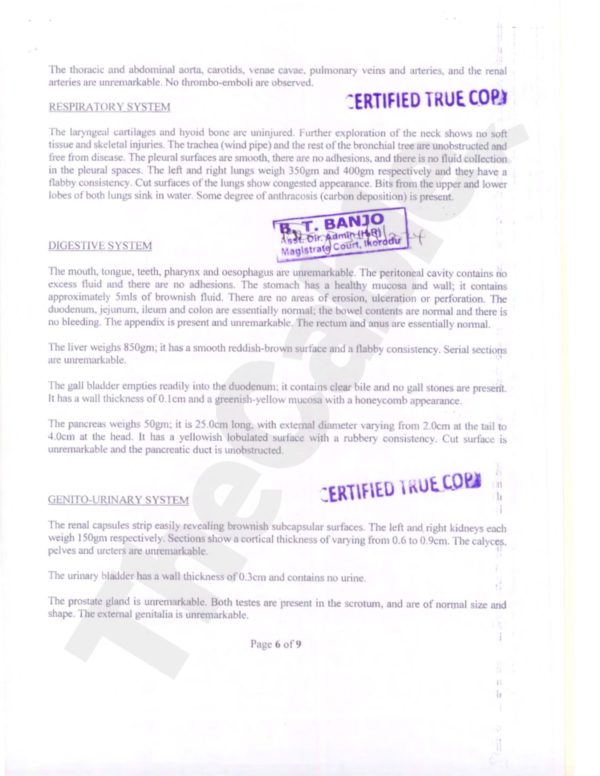
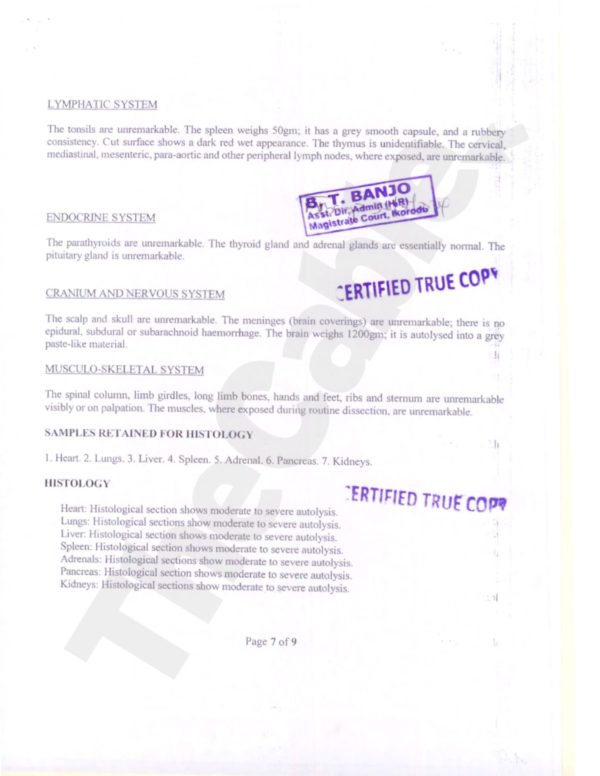
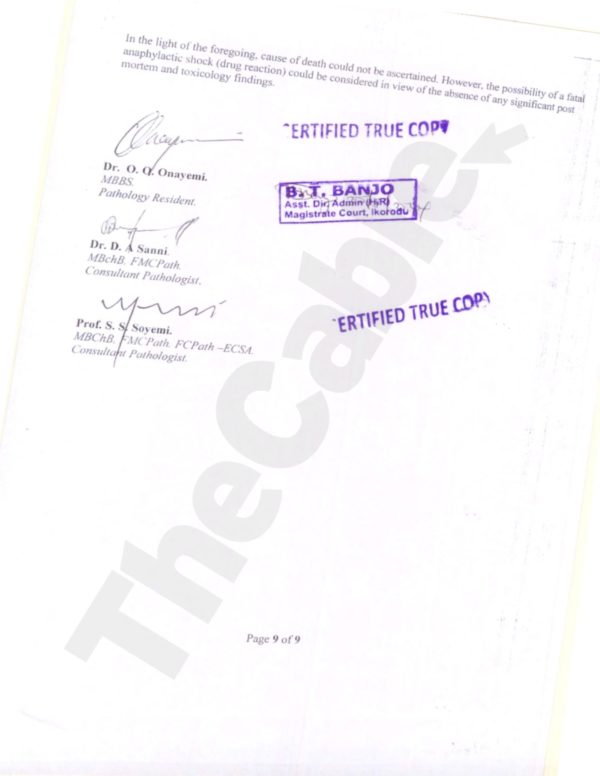
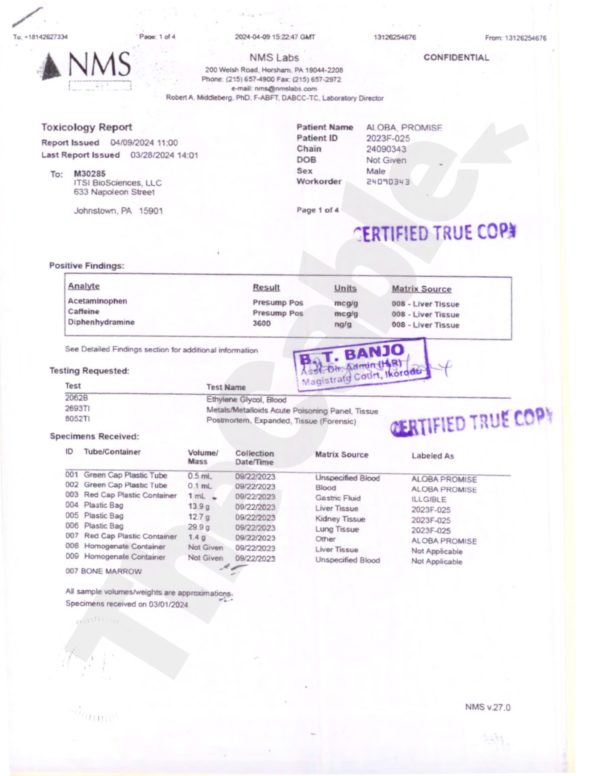
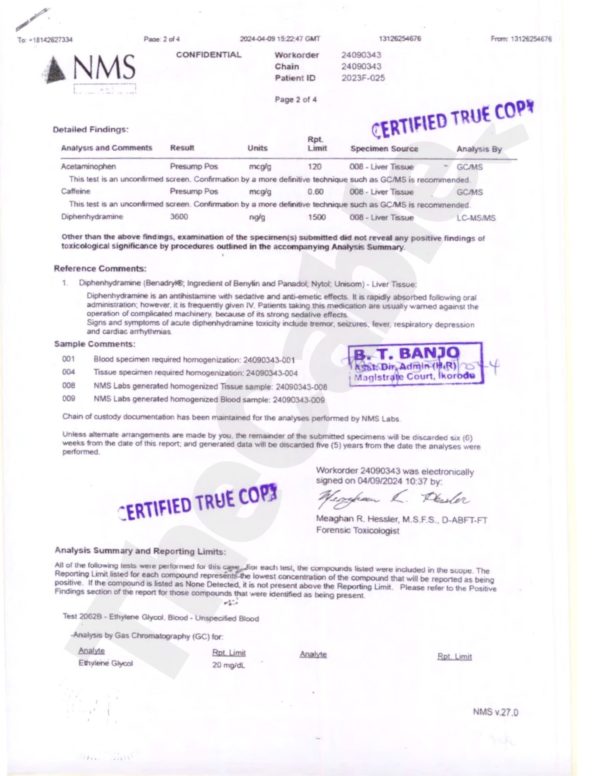
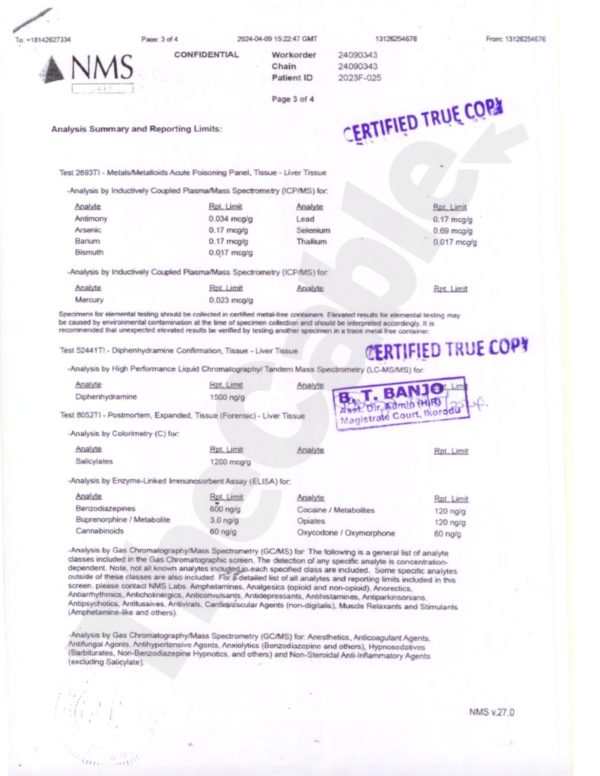
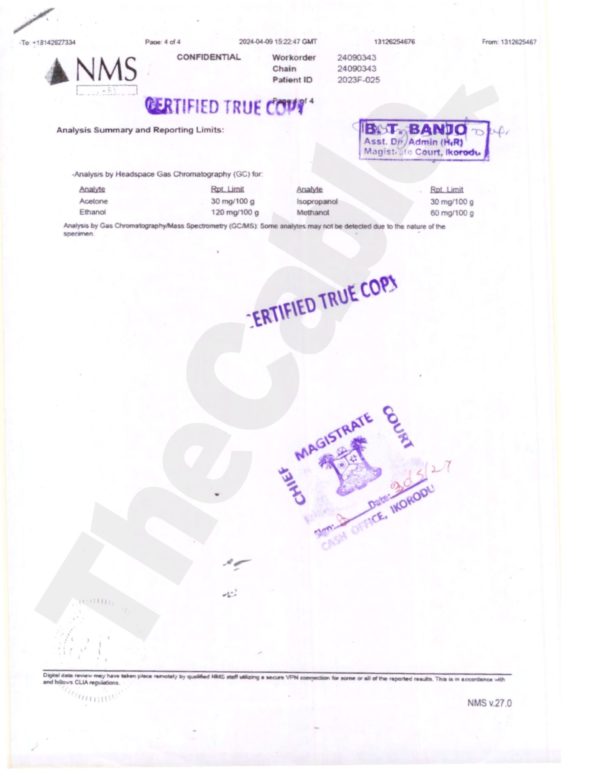
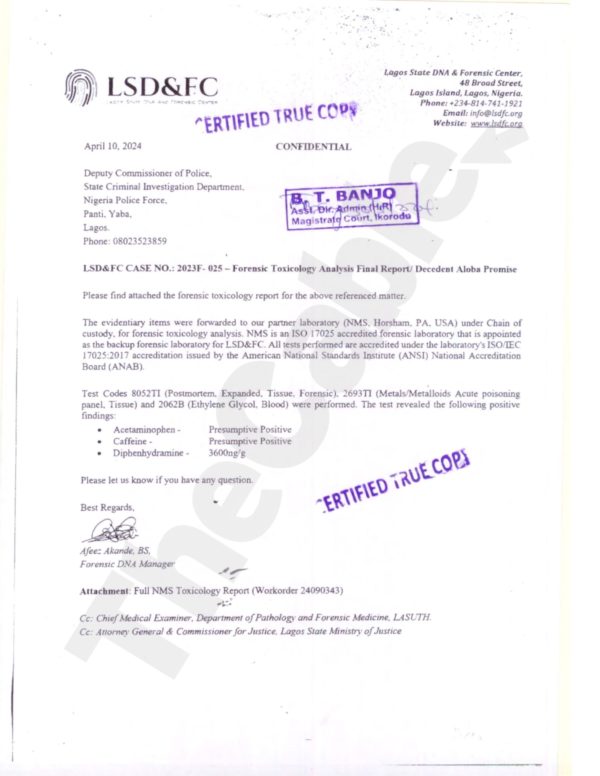
CONTROVERSY SURROUNDING MOHBAD’S DEATH
Born Ilerioluwa Oladimeji Aloba, Mohbad died under mysterious circumstances on September 12 and was buried the next day.
On September 21, the body of the artiste was exhumed. An autopsy was carried out that same day after which the police announced that they were awaiting the results.
On September 14, Joseph Aloba, Mohbad’s father, revealed he passed away after receiving an injection administered by an “auxiliary nurse.
Several suspects — including the auxiliary nurse Feyisayo Ogedengbe, Naira Marley, Sam Larry, and Primeboy — were arrested then in connection to Mohbad’s death.
But in October, the police in Lagos revealed that the auxiliary nurse who injected Mohbad “is the prime suspect” in his death.
Idowu Owohunwa, the Lagos state police commissioner, said Ogedengbe “administered multiple and highly potent injections which triggered an immediate reaction that eventually occasioned the death of Mohbad”.
The commissioner said the injections, consisting of tetanus toxoid, paracetamol, and ceftriaxone injection (IV), were administered at Mohbad’s residence.
She acknowledged that it was the injections that she administered on the deceased that triggered the reactions which eventually led to Mohbad’s death. Other expert opinions and witness statements corroborated her admittance, he added.
Her actions of administering doses of Tetanus Toxoid, Paracetamol (IV) and Ceftriaxone injection (IV) on Mohbad at his residence on 12th September 2023 immediately and directly triggered the reactions (including vomiting, goose bumps, and convulsion) that eventually resulted in the singer’s death.
This criminal liability is further heightened granted the evidential fact that as an auxiliary nurse, she is not qualified to administer such medications or function as a qualified nurse. She also did this in a non-clinical environment and in a professionally negligent manner that negated standard medical protocols.








